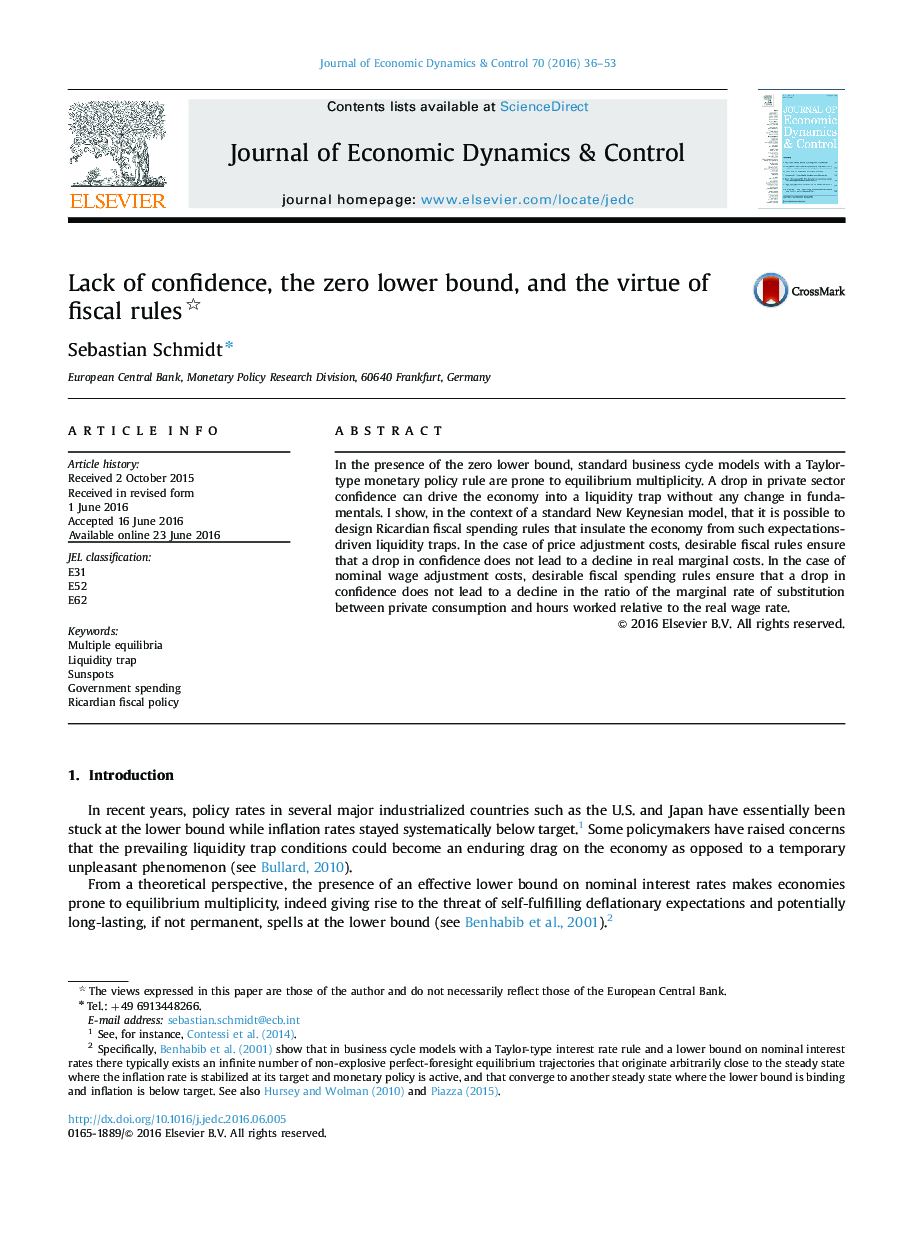| Article ID | Journal | Published Year | Pages | File Type |
|---|---|---|---|---|
| 5098081 | Journal of Economic Dynamics and Control | 2016 | 18 Pages |
Abstract
In the presence of the zero lower bound, standard business cycle models with a Taylor-type monetary policy rule are prone to equilibrium multiplicity. A drop in private sector confidence can drive the economy into a liquidity trap without any change in fundamentals. I show, in the context of a standard New Keynesian model, that it is possible to design Ricardian fiscal spending rules that insulate the economy from such expectations-driven liquidity traps. In the case of price adjustment costs, desirable fiscal rules ensure that a drop in confidence does not lead to a decline in real marginal costs. In the case of nominal wage adjustment costs, desirable fiscal spending rules ensure that a drop in confidence does not lead to a decline in the ratio of the marginal rate of substitution between private consumption and hours worked relative to the real wage rate.
Related Topics
Physical Sciences and Engineering
Mathematics
Control and Optimization
Authors
Sebastian Schmidt,
